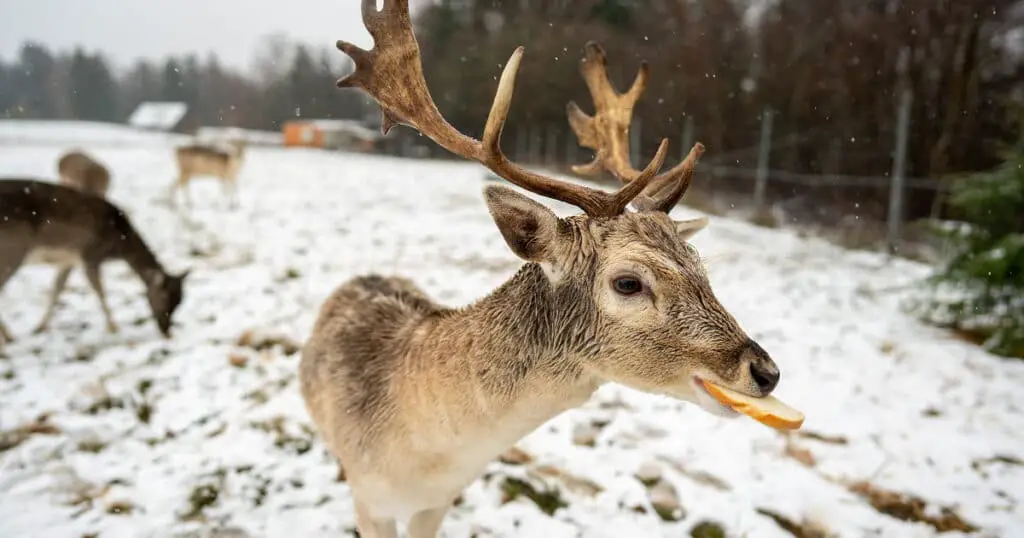During the winter, it’s hard for deer to find food, so deer lovers like to help them out by leaving food in their backyard or in a deer feeder. We often have leftover bread, so maybe you’ve considered leaving that out for deer in the area. But can deer eat bread? Or is it harmful to feed bread to deer?
More than ever before, we’re aware that it’s a bad idea to feed wild animals food that won’t benefit them. Let’s find out whether bread is a good choice for deer and we’ll explain why you may not be helping as much as you think when you feed deer.
Can Deer Eat Bread? (Answered)
While deer can and will eat bread, large quantities of bread is not good for deer and may eventually harm them.
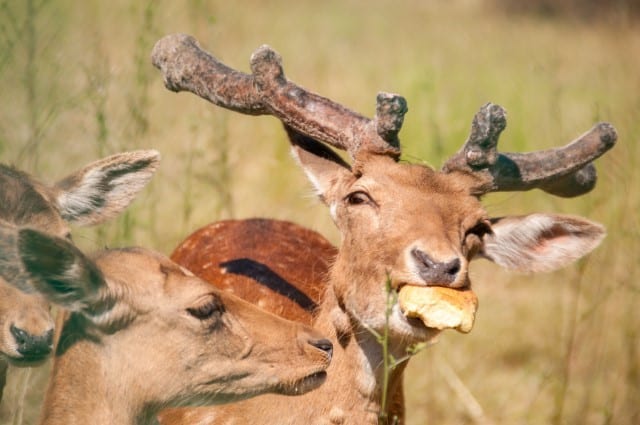
While it may be fine to occasionally feed a deer some bread, you shouldn’t do so all the time. You should understand a deer’s natural diet before trying to feed them anything.
Is it OK to Feed Deer Bread?
In small quantities, yes, feeding deer bread should be okay. A tiny amount of bread shouldn’t hurt them and, if they don’t have any other food, it will give them some nourishment.
However, you really shouldn’t be doing this with wild deer or on a regular basis.
While natural food supplies are scarce in the winter, deer bodies are designed to cope with this change. They eat more in the fall to prepare.

Most importantly, the deer’s digestive system isn’t designed for processing bread.
In the wild, deer eat mostly fruits and other wild plants. Bread is hard for them to digest and doesn’t provide the same amount of nutrients that other food will.
Why Too Much Bread Can Kill a Deer?
Bread has a high concentration of carbohydrates, meaning that a small amount of bread can provide a lot of energy. However, bread is fairly low in nutrients.
Most of the food in a deer’s diet is extremely nutrient-high, which is almost the exact opposite of bread. In addition, the food in a regular deer’s diet is unprocessed and uncooked.
By contrast, even the most natural bread has some human manipulation. After all, wheat doesn’t bake itself in the wild!
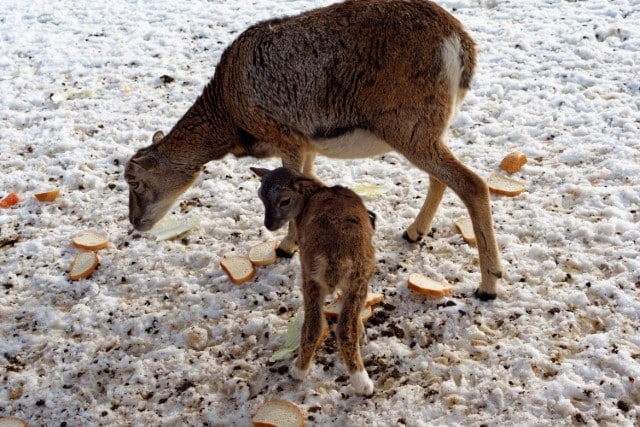
Because bread lacks the proper nutrients for a deer, these animals may actually overeat bread and other high-carb foods and starve themselves by doing so.
This may seem a bit contradictory, but wild animals will eat the lowest-hanging fruit possible, meaning if they know that there is a lot of bread to be had, they will eat it because of their survival instinct.
In doing so, they will not be receiving any nutrients while at the same time stuffing themselves with high-carb food. This can cause the deer to starve, ultimately killing the deer.
Are Some Types of Bread Safer than Others?
If you have to feed deer bread, the best thing to do is try to have the most natural bread you can find.
Whole-wheat and higher nutrient grains are the way to go as they tend to be less processed and are more natural.
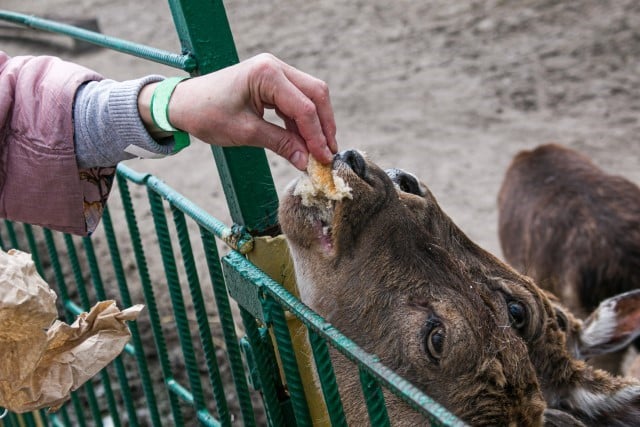
While they don’t provide deer with nearly the amount of nutrients that they need, they’re better than white sandwich bread.
Never offer corn-based breads to deer, as corn isn’t a part of a cervid’s natural diet. It will be more difficult to deer to digest.
What Can I Safely Feed Deer?
First of all, feeding deer probably isn’t something you should be doing in the first place. However, it could be the case that you have a pet deer or are breeding or hunting them, in which case you need to know what deer like to eat.
The best food to give deer is what they eat in the wild. Deer eat plants, fruits, and grass. The types of plants they eat varies depending on the season, where they live, and what type of deer we’re talking about.
All of these factors should be kept in mind when feeding them.
You can probably find some deer feed in a hunting or outdoors shop that will have the perfect deer food mixture.
What You Should Never Feed Deer?
You should never feed deer hay or feed designed for other animals. Deer will starve themselves while eating hay.
Considering deer sometimes eat grass in the wild, this may seem silly, but it makes perfect sense when you think about all the nutrients that are in grass.
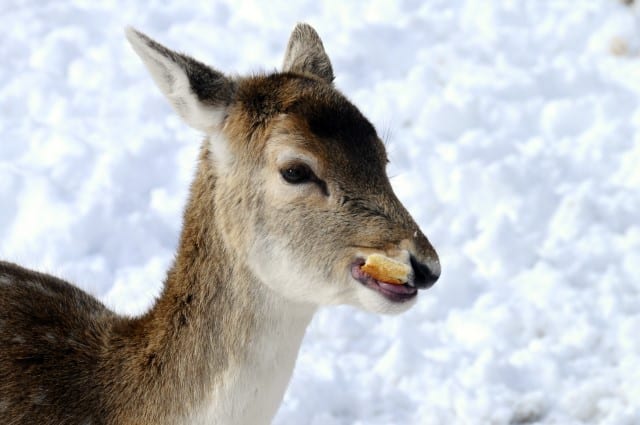
Never give deer dog or cat food.
Remember that deer are herbivores. Their digestive systems can only handle plants.
Dogs and cats, on the other hand, eat meat.
A deer won’t be able to properly digest meat or food designed for a carnivore’s stomach.
Deer should also never be fed rhubarb since it is toxic for them, and root vegetables such as potatoes should be avoided in addition to onion and garlic, which are high in sulfur.
Feeding Deer Often Does More Harm Than Good
Deer are wild animals, and they live inside a delicate ecosystem. When they are in the wild, nature already provides everything that a deer would ever want to eat.
Feeding deer will intefere with their food chain, and this can disrupt the eating habits of other animals in addition to deer.
While it may seem nice and friendly to help out the deer with a snack, you shouldn’t do this unless you’re a hunter or know exactly what you’re doing.
You Shouldn’t Give Dear Bread
Bread isn’t part of deer’s natural diet, and if they eat too much bread, they will actually starve themselves because they won’t receive the nutrients they need.
In general, feeding wild deer is not a good idea. If you ever do feed deer, stick to a food that is part of the animal’s natural diet, which you can learn more about right here.

